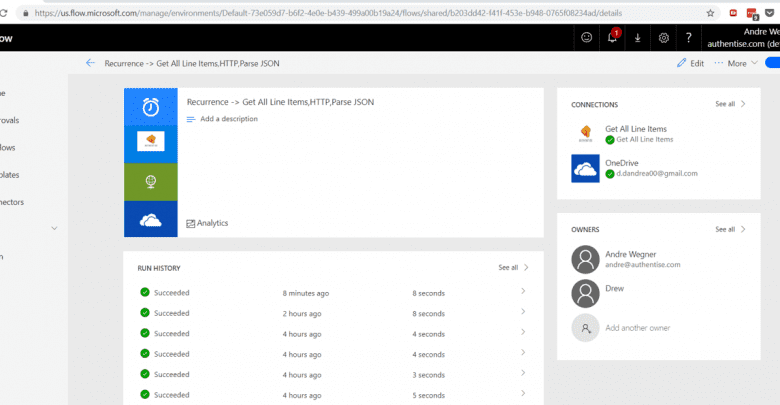Additive manufacturing (AM) process automation software developer, Authentise has announced a multi-year collaboration with Microsoft to integrate its workflow management system into Microsoft Flow.
The collaboration utilises Microsoft Azure cloud computing platform to make digital automations available to AM end-users without any coding knowledge. With Flow, operators can connect Authentise data with a number of third party applications such as Microsoft Office 365, Quickbooks and email, using a simple drag and drop function, and create custom alerts, dashboards and workflow automations to increase AM efficiency and transparency.
“We’re delighted to be working with Microsoft to put power into the hands of operators,” says Andre Wegner, CEO of Authentise. “Our work has shown us how creative those involved with additive production are, and how that ingenuity is often stifled within their operations. Yet, there are many ways in which they could improve their daily operations with zero risk. Thanks to this collaboration, we are giving the power to make those changes to anyone, no matter their background.”
Authentise customer, Danfoss, says it welcomes the development which it believes will help AM operators manage their workloads by enabling individuals to create their own automations based on their particular requirements and preferences.
Werner Stapela, Global Head of Additive Design & Manufacturing at Danfoss, commented: “Giving individuals within any part of the additive workflow the opportunity to craft their own automations is the only way to ensure that the production processes is working as smoothly as possible.”
Diego Tamburini, Principal Manufacturing Industry Lead for Cloud Commercial Communities at Microsoft, added: “By adding manufacturing-specific connectors to the Microsoft Flow gallery, Authentise is unlocking the workers’ creativity so they can improve the efficiency of their own work. With 54 regions across the globe delivering services to 140 countries, Microsoft Azure is uniquely positioned to help manufacturers meet their compliance obligations including ITAR and GDPR. While Manufacturers may have once shied away from the cloud, they are no longer doing so.”


